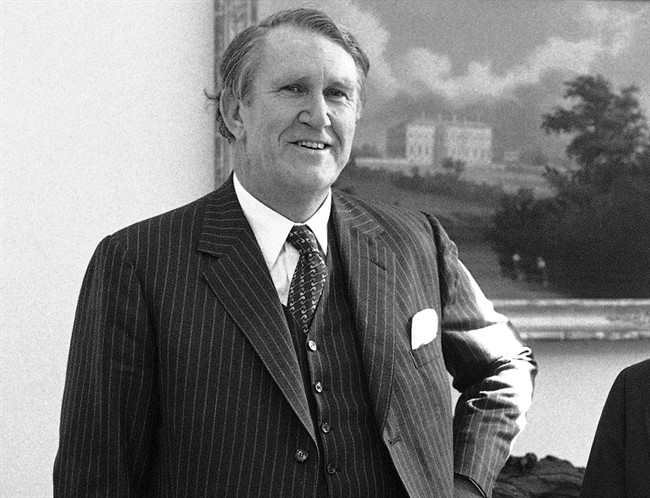CANBERRA, Australia – Malcolm Fraser, the former Australian prime minister who was notoriously catapulted to power by a constitutional crisis that left the nation bitterly divided, died on Friday his office said. He was 84.

Fraser was active in public life until the end and his death shocked the nation. His life after politics was dominated by human rights issues.
“It is with deep sadness that we inform you that after a brief illness John Malcolm Fraser died peacefully in the early hours of the morning,” a statement from his office said.
Tributes poured in from members of the current conservative government, his contemporaries and from all walks of life.
Prime Minister Tony Abbott said Australia’s 22nd prime minister had “restored economically responsible government while recognizing social change.”
“Malcolm Fraser held true to the belief that his actions were in the best interests of Australia,” Abbott said in a statement.
“He was a giant of Australian politics,” Australian Foreign Minister Julie Bishop said.
“We’ve lost a really great Australian and someone who I look to as an exemplar for values that I think are important,” said Fred Chaney, a minister in Fraser’s government.
With the cultivated Australian accent of the old money families and a stony countenance that cartoonists lampooned as an Easter Island statue, many mistook him for a classical conservative.
But he later became a vocal critic of conservative politics in Australia and a thorn in the side of the centre-right Liberal Party that he once led, and eventually quit in disgust in 2010 following the party’s election of Abbott as its leader.
Fraser became the unelected leader of an unsuspecting nation in 1975 when the then Governor-General John Kerr took the unprecedented step of dismissing the chaotic, frenetically reformist government of Prime Minister Gough Whitlam.
It was a development that most Australians had not thought possible. Many were outraged that the Australian representative of Queen Elizabeth II, Australia’s distant constitutional head of state, would dare oust a democratically elected government.
An indignant Whitlam branded Fraser as “Kerr’s cur,” and urged voters to “maintain the rage” at the ballot box.
A month after taking power as a caretaker government, Fraser’s conservative coalition won a clear victory over Whitlam’s centre-left Labor Party. Fraser won another two three-year terms.
His government’s achievements include legislation that gave land back to Aborigines in the Northern Territory, an outcome he always gave credit to Whitlam for initiating.
He strove to transform Australia, a former British colony, into a multicultural society, and was a vocal opponent of apartheid in South Africa.
He opened Australia’s doors to tens of thousands of Indo-Chinese refugees following the Vietnam war, created Australia’s multicultural broadcaster Special Broadcasting Service and was the first chairman of the humanitarian organization CARE Australia.
With Australia’s post-World War II economic boom stalling in the early 1970s, Fraser’s government battled rising inflation and growing unemployment. A saying he would occasionally use came to epitomize for many Australians his government’s philosophy: “Life wasn’t meant to be easy.”
Fraser later explained that the line was a partial quotation of George Bernard Shaw: “Life is not meant to be easy, my child. But take courage. It can be delightful.”
But his legitimacy as a leader never recovered from the controversy over how he got there. The “Kerr’s cur” tag lingered in the nation’s memory decades later.
Years after Fraser and Whitlam’s parliamentary careers ended the two political foes became friends. They shared a disappointment that their rival parties had both shifted to the right on issues including the treatment and detention of asylum seekers.
Whitlam died in October last year aged 98.
During the Vietnam war, Fraser was army minister and then defence minister while Australian troops fought alongside America, Australia’s most important strategic ally and a treaty partner since 1951.
His political transformation was underscored last year when he published a scathing account of the U.S.-Australian alliance entitled “Dangerous Allies,” which was described by some reviewers as radical.
The book, which describes drones as “weapons of terrorists,” argued that the alliance had become a liability for Australia since the end of the Cold War and risked dragging Australia into an unwinnable war against China.
Fraser was born in the wealthy suburb of Toorak in Melbourne city on May 21, 1930. He was educated at exclusive Melbourne Grammar School and Oxford University before reluctantly returning to farming in Victorian state.
He recently said he fell into politics by accident, being first elected in 1955 at the age of 25.
He is survived by his wife Tamie and four children.



Comments